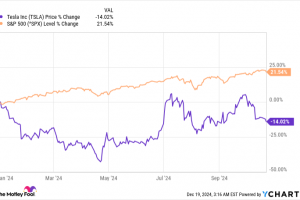
The Biden administration’s new stock buyback tax will have little impact on the overall stock market. It might even actually help it. I’m referring to the new 1% excise tax on share repurchases that went into effect on Jan. 1.
This tax has set off alarm bells in some corners of Wall Street, on the theory that buybacks were one of the biggest props supporting the past decade’s bull market — and anything weakening that prop could lead to much lower prices.
Even more alarms went off after President Joe Biden telegraphed his intent to quadruple federal taxes on buybacks, to 4%.
Read: Biden’s State of the Union: Here are key proposals from his speech
While this proposal is considered dead on arrival on Capitol Hill, the focus on possibly increasing this tax from 1% reduces the likelihood that it will be eliminated anytime soon.
Tax applies to net repurchases
Yet stock-market bulls shouldn’t worry. One reason is that the new excise tax — whether 1% or 4% — is applied to net buybacks — repurchases in excess of how many shares the corporation may have issued.
As has been widely reported for years, the shares that many companies are buying back often are barely enough to compensate for the new shares they issue as part of their compensation of company executives. As a result, net repurchases — on which the new tax will be levied — are an order of magnitude smaller than gross repurchases.
The chart below provides the historical context. It plots the S&P 500’s
SPX,
+1.29%
divisor, which is the number used to divide the combined market cap of all component companies to come up with the index level itself. When more shares are issued than repurchased, the divisor rises; the reverse causes the divisor to fall.
…..






